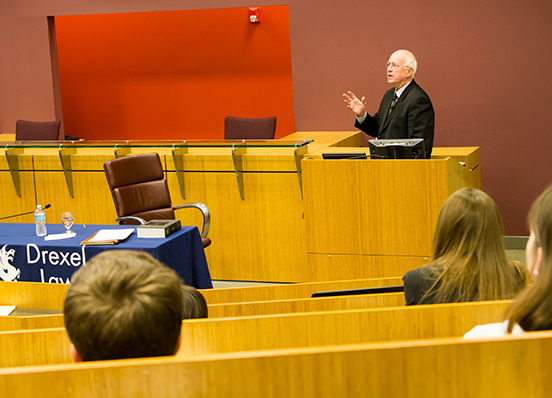Students, faculty and administrators gathered to hear health care law professors Robert Field and Barry Furrow discuss the evolution of health care in the context of the release of their new books on the subject.
Field's book, "Mother of Invention: How the Government Created 'Free-Market' Health Care," published by Oxford University Press, traces longstanding government policies that have allowed free enterprise to shape health care delivery in the U.S. Field recounted how the story of the health care system is really the story of the marriage of government and private sector interests.

The private health care industry, as we know it today, would not exist without the support of government programs, Field said. In essence, Field argued, private industry and government are "partners in a joint [health care] venture." This collaboration was necessary and has been instrumental to such medical advances as mapping the human genome, advances in hospital care, and lowering costs of private insurance.

Professor Barry Furrow agreed claiming that capturing the evolution of that public/private partnership was one of the challenges in drafting his extensive new health care law treatise, "Health Law -- Cases, Materials and Problems," now in its 7th edition. Professor Furrow, who directs the law school's Health Law Program, explained how the field is so extensive, involving
contractual law, products liability, patents and trademark law and the
myriad of subject matters surrounding government regulation of the field. Plus, with the advent of the Affordable Care Act, the law is constantly evolving. This is why Furrow said he strove to lay out a strong legal framework in his book. One of the greatest challenges in crafting a book on such a dense subject is figuring out how to cover the vast spectrum of legal issues that fall under the health law umbrella while simultaneously giving future health lawyers the tools they need to adopt to the constantly evolving landscape. The key is "setting the student up for circumstances that do not exist yet," Furrow said.